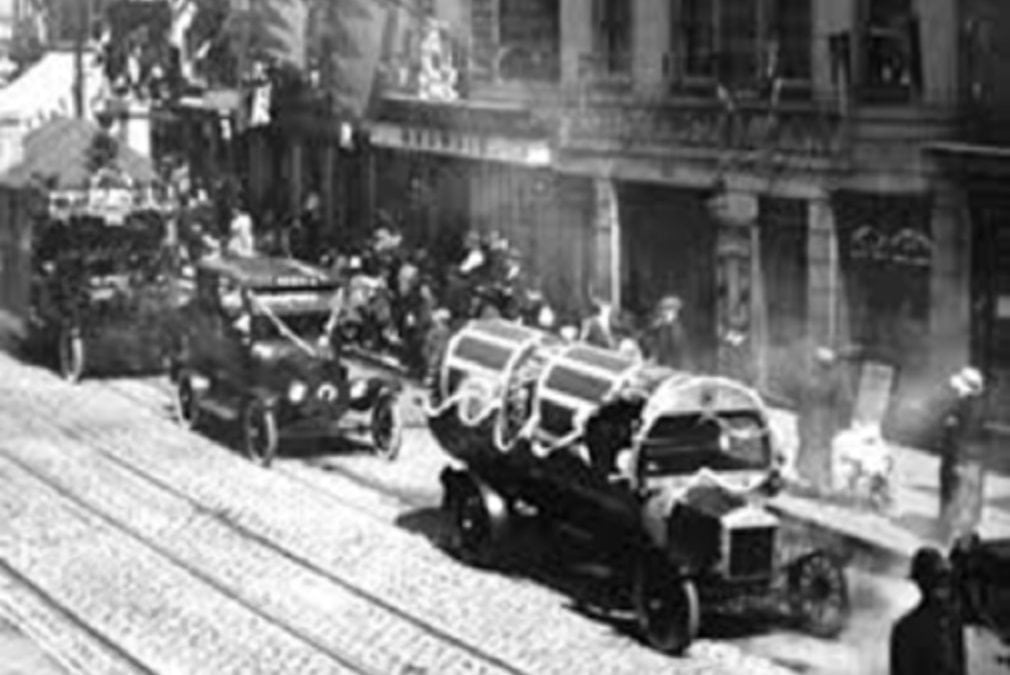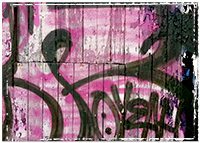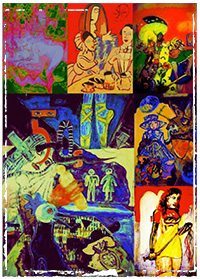In this series, we sit down with a current (or recent) PhD researcher and actively try not to talk about their research. Instead, we chat about their experience of doing a PhD, how they cope with the pressures and workload, and hopefully, find out something interesting about them on the way. In this article, we talk with Angela English, an M3C PhD researcher working with archive film, about funding and having other people to talk to about your PhD experience.
Why did you want to do a PhD?
I’m a mature student, I’ve have had a long career in the arts and education, and the PhD is something I have always wanted to do. I did my MA in the year 2000, on film history and TV, and originally started a PhD after that. But life got in the way and I wasn’t able to continue it, but it was always something I’d wanted to come back to. Then in 2015 I was working on a research project which lost its funding, and at that point I thought this might be an opportunity to apply to do a PhD, so I did.
You are M3C (Midland 3 Cities) funded, what can you say about that experience, and would you have been doing a PhD without it?
That’s a good question. I got the place at BCU before getting the funding, so I think I would have tried to self-fund, but I would only have been able to be part-time. Getting the funding was instrumental in me being able to stop work and do this full time. In terms of the M3C experience, it offers a range of opportunities which I have embraced such as the Talking Heads media training, and it puts you in a wider community which comes together for things like the annual research festival, it feels like a wonderful community.
How does the reality of doing the PhD compare to your expectations?
It’s different. I think it’s an extraordinary thing doing a PhD, especially as a mature student. It’s an interesting experience which stretches you in ways I didn’t quite think it was going to. It makes you question some of the things you held to be true or ideas about how things are done. I think one thing I really enjoyed in the first year was just being able to read all day long if I wanted to. But, I am now about halfway through, and doing the primary research has been a bit more stressful because it’s balancing going out and interviewing people, transcribing what they have said, and trying to take ideas from it.
How did the PGCert prepare you for going into that stage?
I was reluctant to go back to the classroom to do the PGCert, but looking back on it, it gives you the chance to talk to other PhD students, and be with them as a cohort. Working on the idea of what it means to be a researcher was really useful in getting me back into that mindset. Doing a PhD can also be very isolating, you are just alone with your brain and your ideas, so having that community is good.
Your husband is also doing a PhD at the moment, does having someone who can relate to what you are going through make it easier?
I think it is helpful having someone who, when you are talking about things, whether it’s a progression panel or a review, knows what you are talking about. It strikes me that a lot of people outside this community don’t know was a PhD is. So, even if there’s not an overlap in our subjects, there’s an overlap in our experience. We can support each other and are talking the same language. We’re also quite interested in the others subject, I don’t really know much about music, but I’m interested in what he’s doing, and we do have an ambition to work together with him composing some music to go with some archive film that I’ll be working with.
Do you have any tips for other PhD students?
Be organized from day one! One of the great bits of advice I was given was ‘keep a research diary’ and I’m on my fourth notebook now, it’s a one-stop place where I write my ideas, work plans, everything. Also, try to be disciplined, make a work-plan for every week, even if you can’t stick to it. And then, try to have time off, even if I’m not very good at that myself, try not to become stressed or upset by it. Know when to have a break, and do something different. But for me, the things which have been most useful is getting really organized, having the right files. Somebody said, ‘a PhD is all about stationery’. Also, make sure you are always backing up your work!
ENDS



